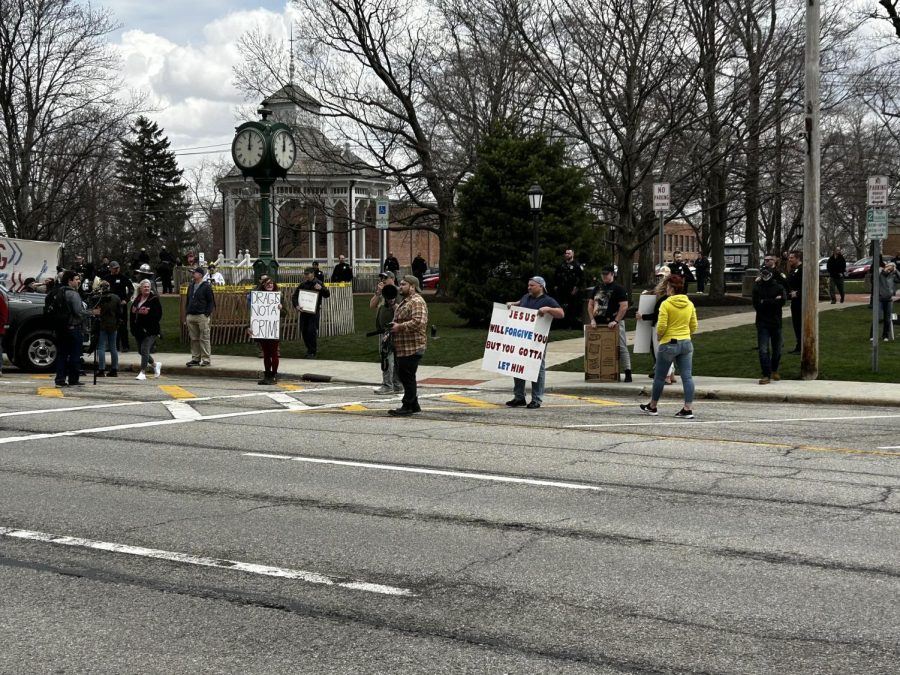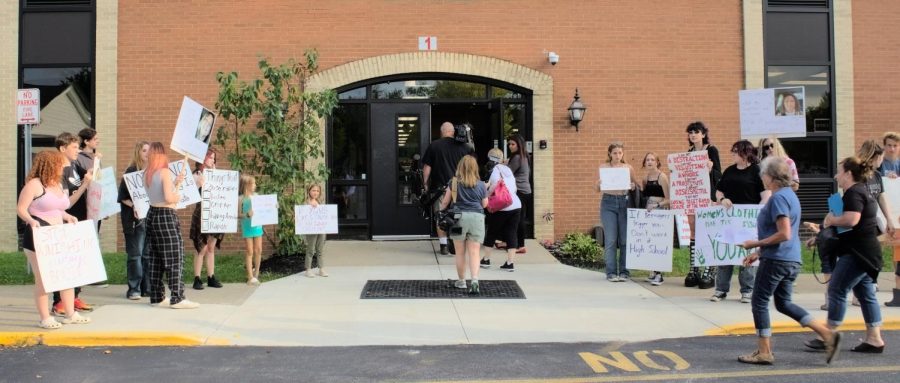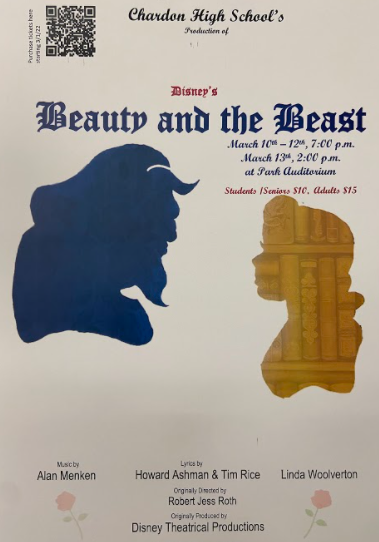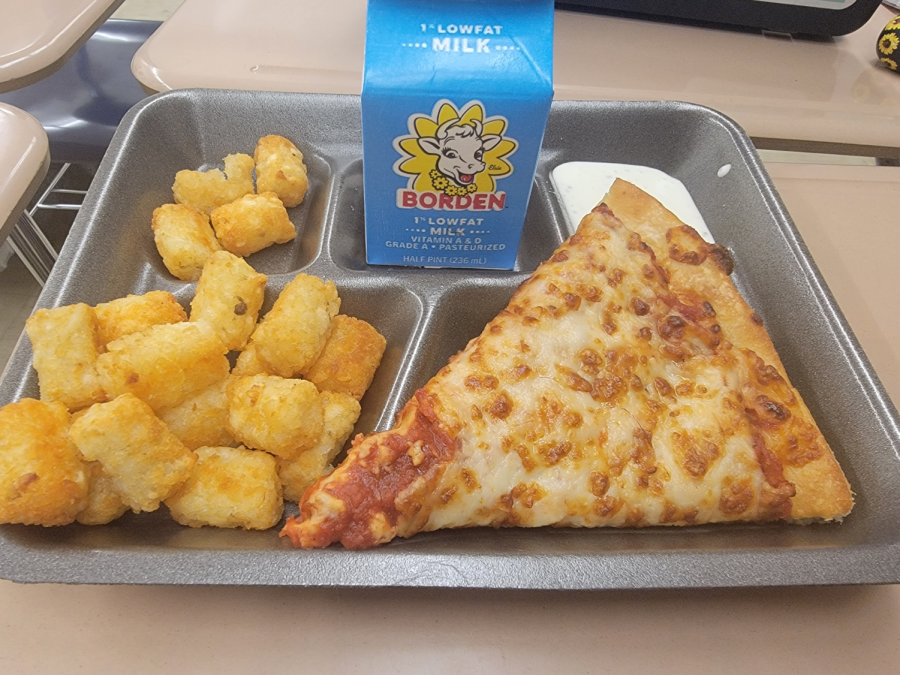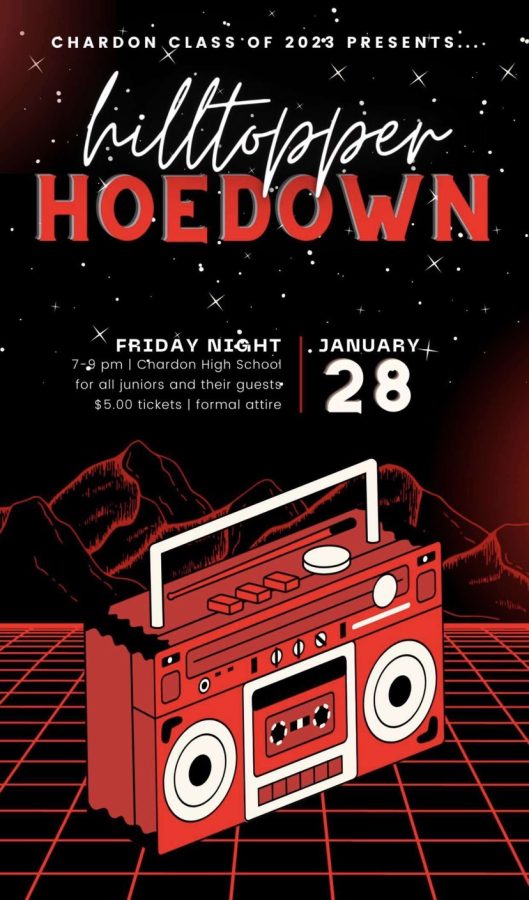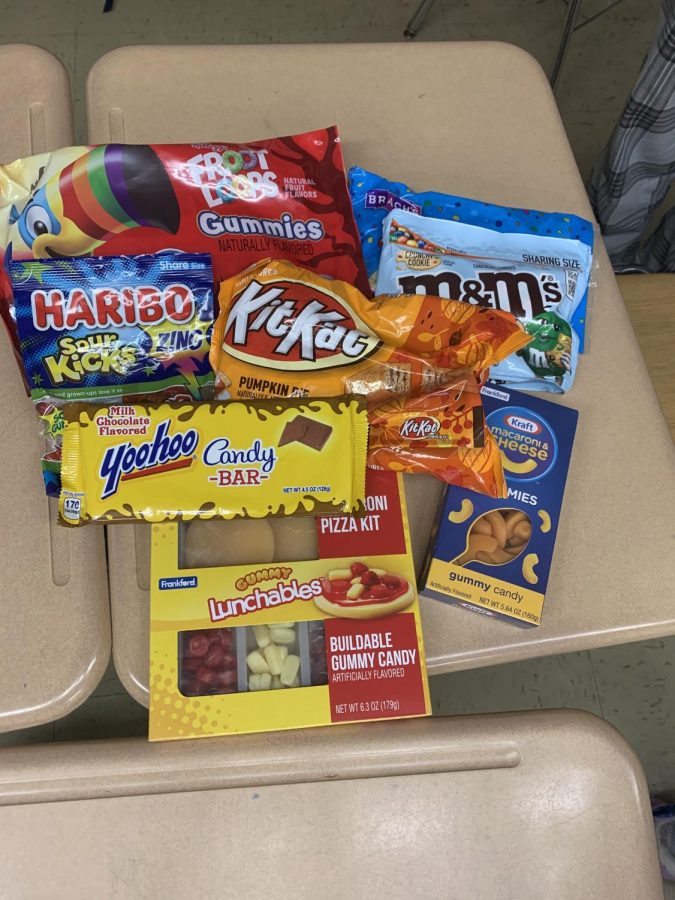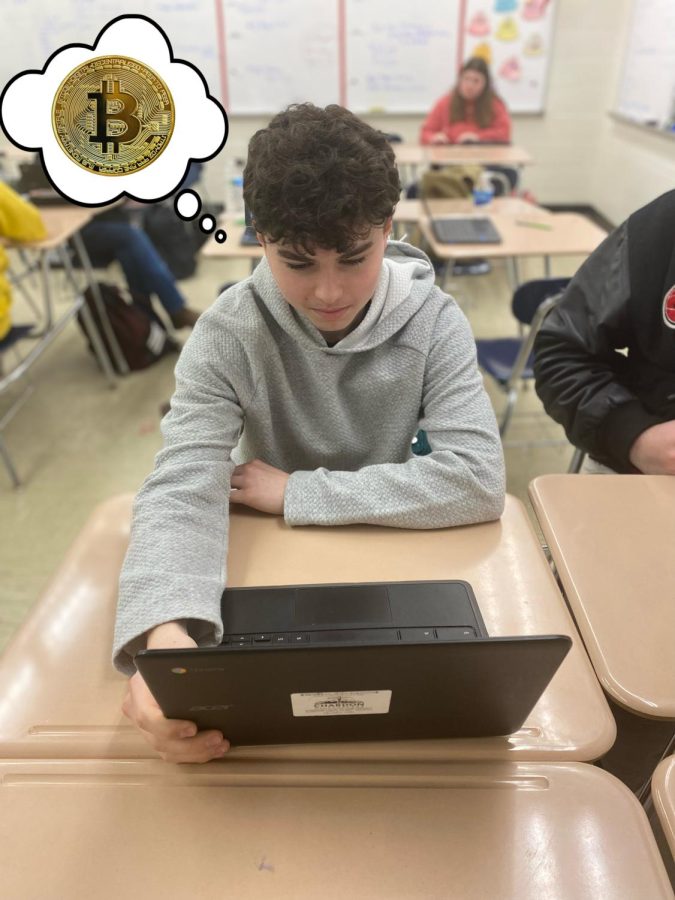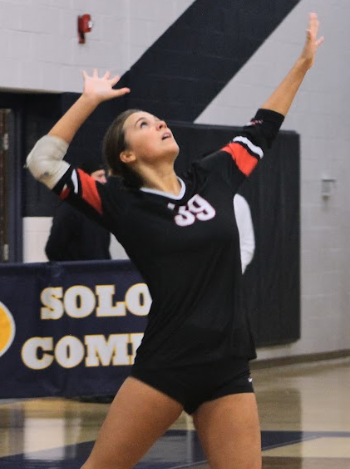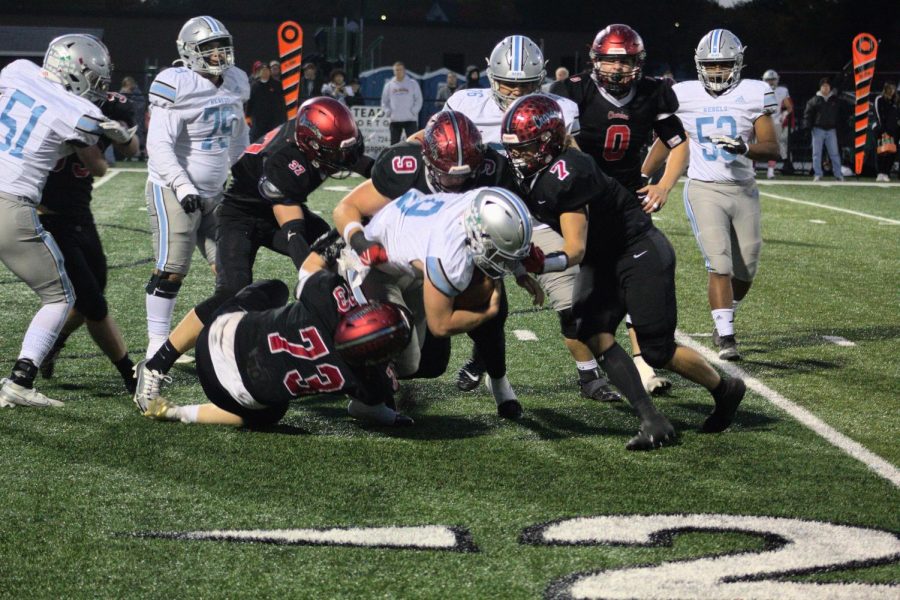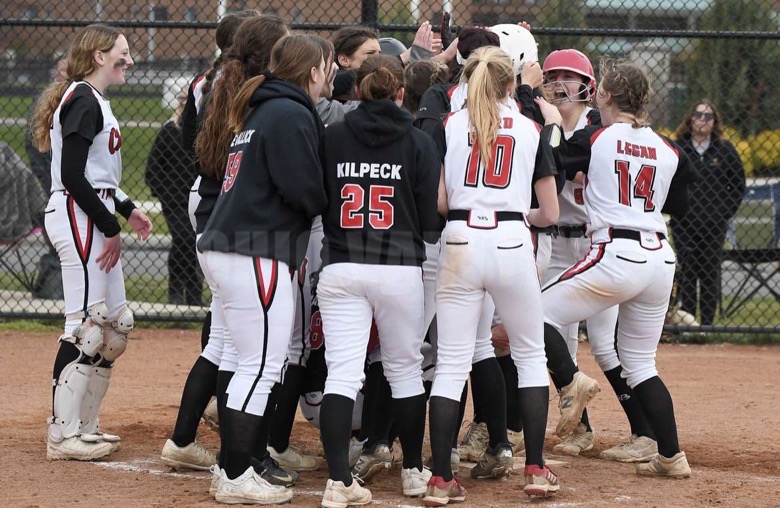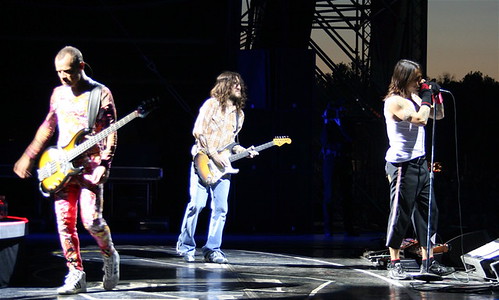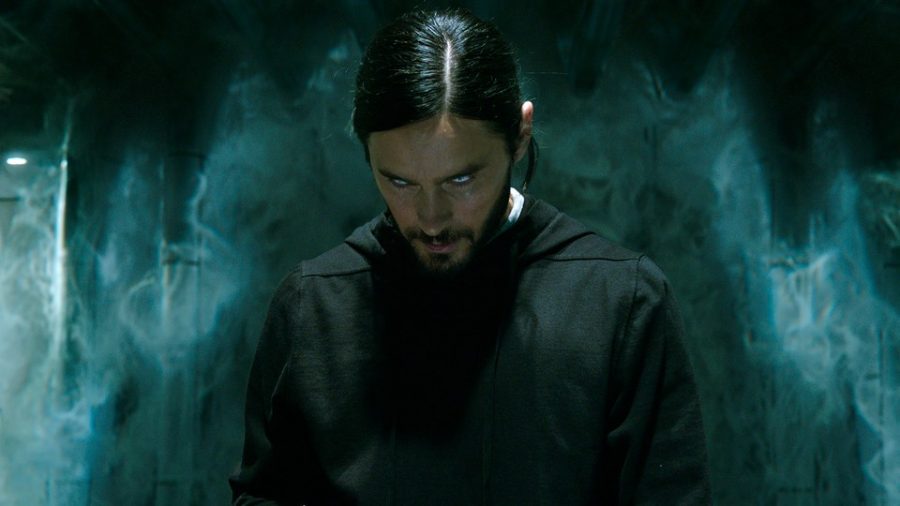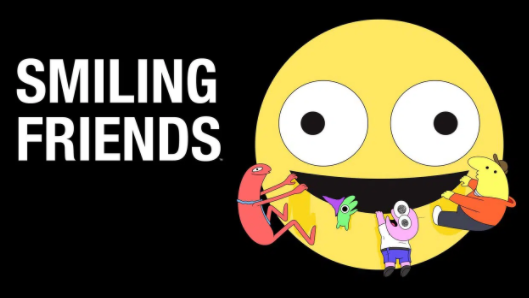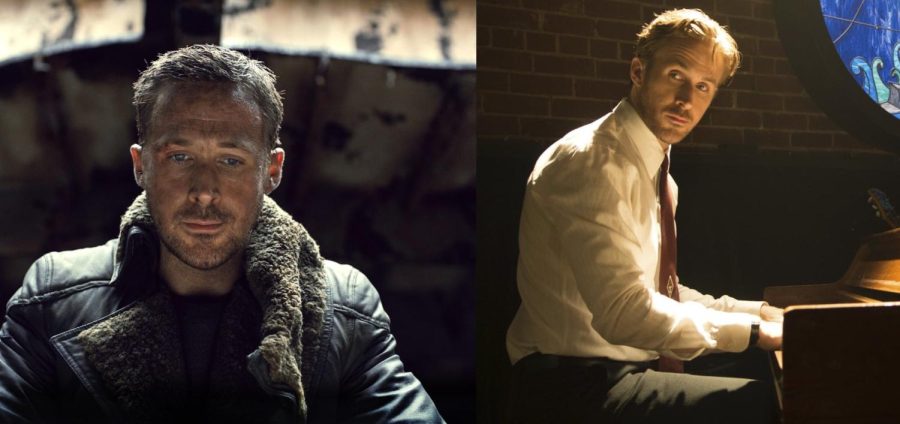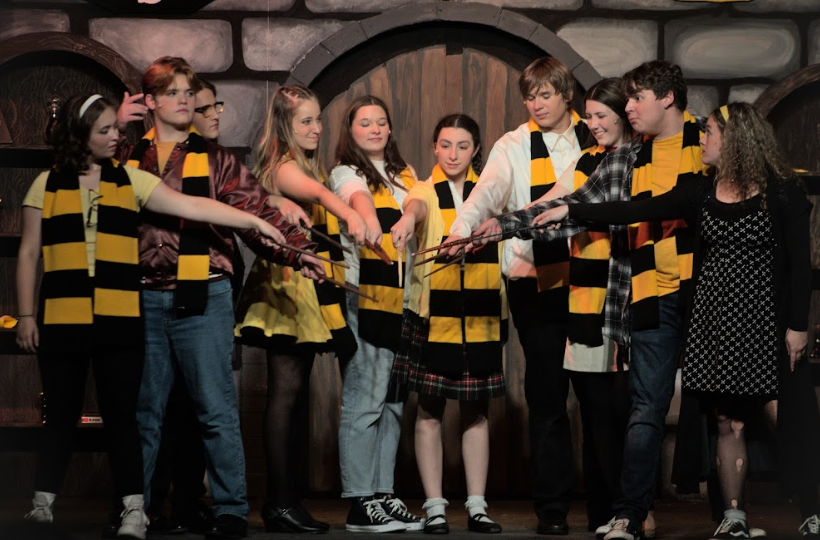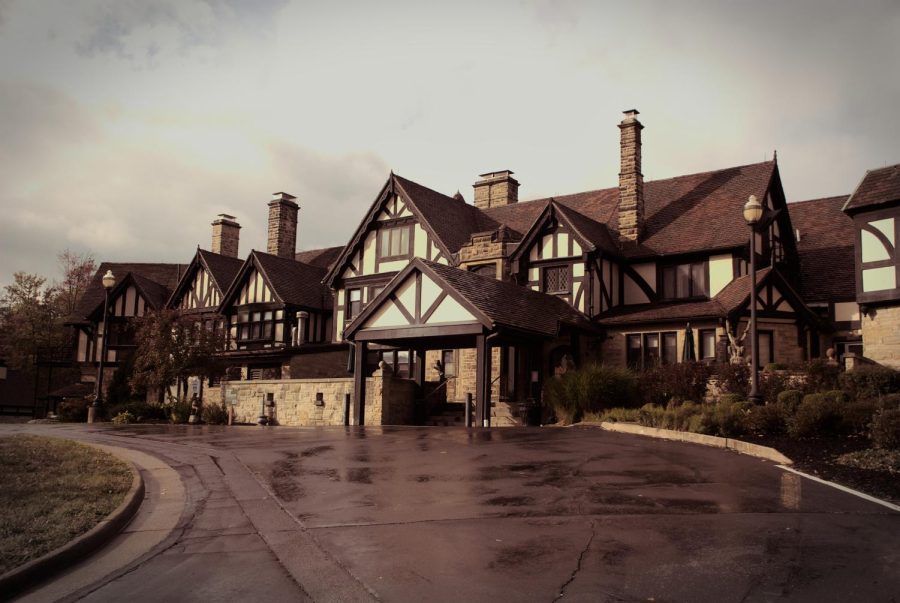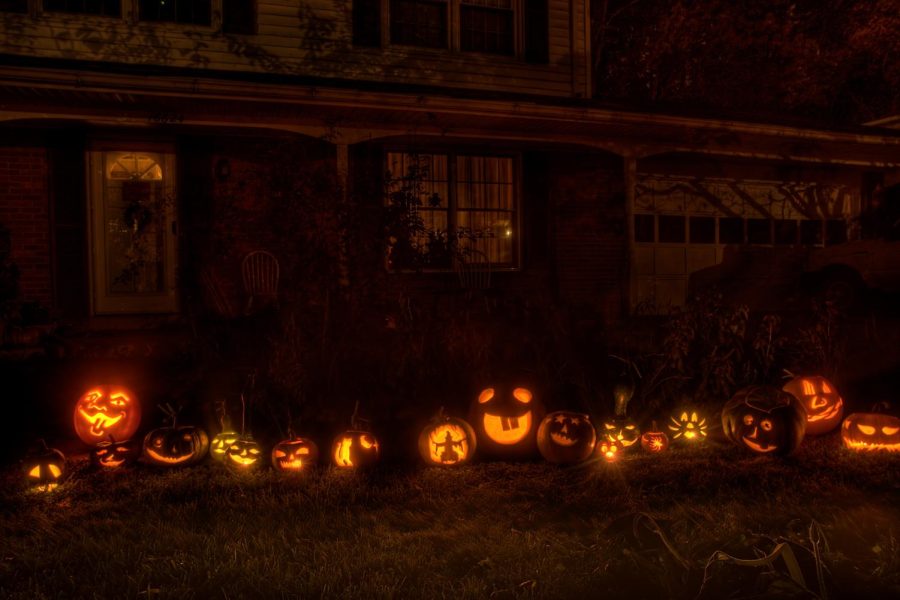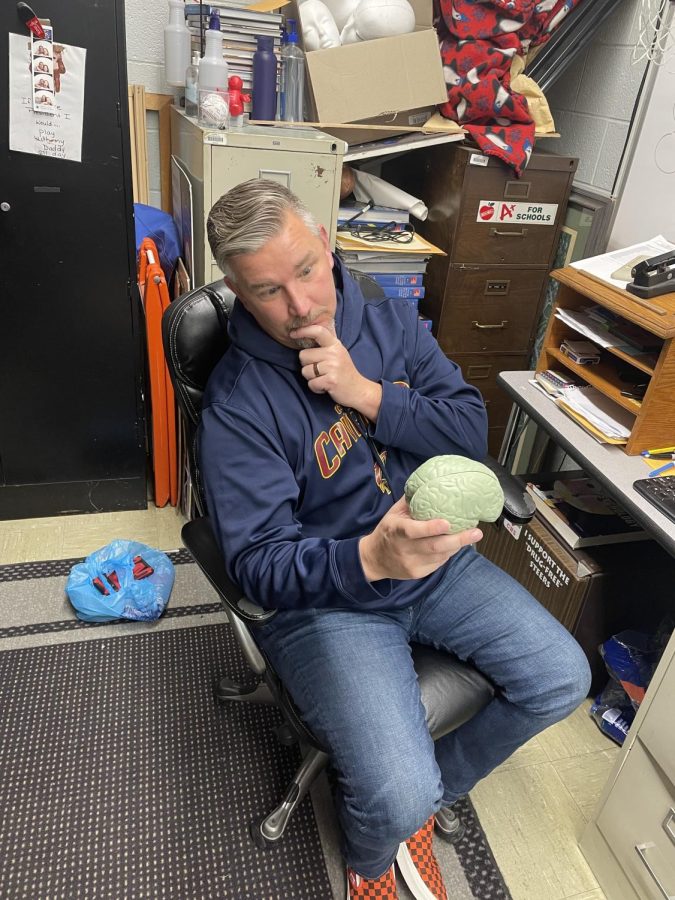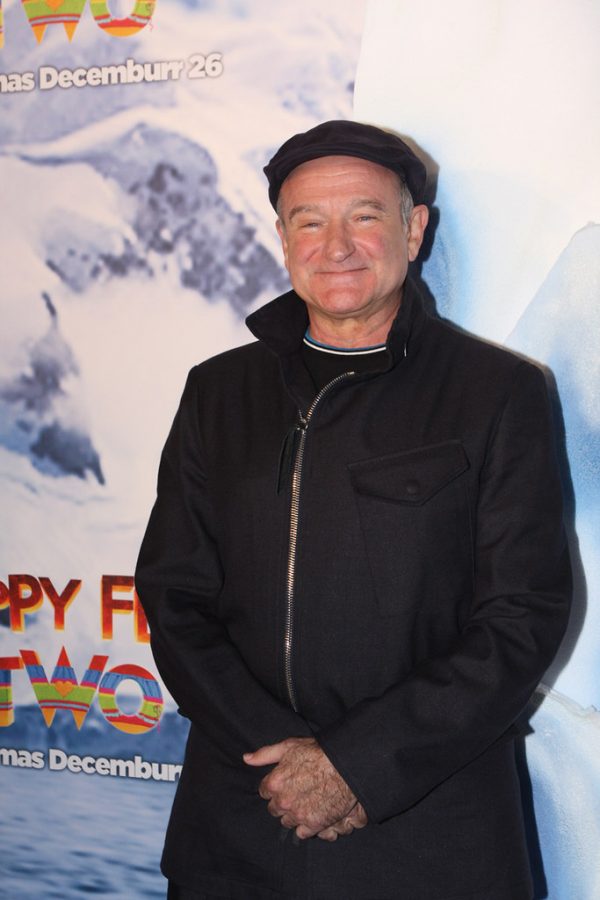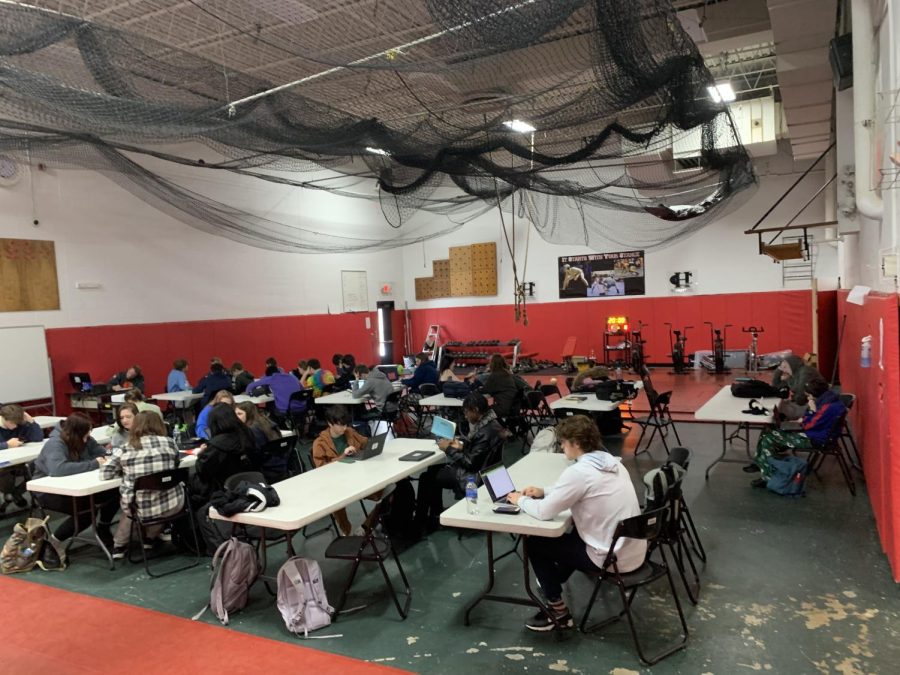Remembering Robin Williams
Hilltop Echo Columnist Morgan Strlich-Waybright honors the comedic genius behind such classics as Aladdin, Good Morning Vietnam and Mrs.Doubtfire.
June 4, 2021
An unknowable void remains between Robin Williams the man and Robin Williams the myth. Various projects have shined some light into that darkness, including Dave Itzkoff’s definitive biography Robin and the HBO documentary Robin Williams: Come Inside My Mind. In April, his estate launched a YouTube channel featuring clips of Williams performing, as well as interviews with fellow actors and comedians sharing their insight about the late entertainer.
Yet no matter how thorough the dive or how many laughs relieved, that doesn’t change the ongoing surreality of Williams’ absence. The mountain of work he left behind, even the more forgettable stuff, seemingly shows a man who’s tearing into life with both hands, gorging himself silly and coming back for more
Most casual and close observers of Williams knew that wasn’t entirely the case. There were his self-deprecating stories about booze and drugs, a relapse in 2006 after 20 years of sobriety and an unequivocally macabre thread running through much of his comedy and into his film choices. But his suicide on Aug. 11, 2014, is what turned the myth of Williams as America’s quintessential funnyman on its head.
When the shocking news broke, the quest for clues as to why began. He had talked about depression or joked about it and danced around it, which was more his style, but had he given any inkling whatsoever that he was losing the will to go on? His survivors included his wife of three years, Susan Schneider, and three grown children from his two previous marriages, Zak, Zelda and Cody as well as countless heartbroken friends and loved ones.
It wouldn’t become widely known for more than a year that Williams was suffering from Lewy body dementia, a Parkinson’s-like disease that attacks motor function and the mind, when he decided to take his own life by hanging himself in his bedroom at his Tiburon, Calif., home.
In fact, the 63-year-old entertainer was first misdiagnosed with Parkinson’s several months prior, and that’s the first version of events that presented itself in the days after his death. “It was not depression that killed Robin,” Susan told People magazine in November 2015. “Depression was one of let’s call it 50 symptoms, and it was a small one.” Meanwhile, the symptoms of Lewy body “present themselves like a pinball machine,” she continued. “You don’t know exactly what you’re looking at.
“I’ve spent this last year trying to find out what killed Robin,” Susan said. “To understand what we were fighting, what we were in the trenches fighting and one of the doctors said, ‘Robin was very aware that he was losing his mind and there was nothing he could do about it.”
That would be a devastating diagnosis for anyone, but compounded with an already fragile emotional state, an addictive personality and a life’s work based on mental agility and rapid-fire talk and movement, it became an irreconcilable fate.It also didn’t immediately occur to most people to think of Williams’ career as having been in decline, a concept that only became clearer posthumously once you looked at the cluster of films he had spent the last 10 years doing.
Aside from a few bright spots such as World’s Greatest Dad, directed by his close friend Bobcat Goldthwait, he churned out mostly forgettable film fare when compared to his most enduring movies all of which, including Dead Poets Society, Good Morning, Vietnam, Mrs. Doubtfire, The Birdcage, Aladdin and Good Will Hunting, for which he won an Oscar, were made in the 1980s and ’90s. He stole enough scenes, whether it was playing Teddy Roosevelt in the Night at the Museum franchise or voicing a penguin in Happy Feet, and “branched out” enough—Law & Order: SVU had a real run turning beloved comedians into serial killers—to never leave the conversation. And his iconic roles were so iconic that they more than pulled their weight for multiple decades.
Plus, there was always the delight of his talk show appearances, mini performances every one of them, when he had one of his movies to promote—and he always had something going on. In addition to regularly showing up for Comic Relief with co-hosts Whoopie Goldberg and Billy Crystal, he had a hit with 2002’s Robin Williams: Live on Broadway. His 2008 tour and subsequent HBO special Weapons of Self-Destruction—at the time mainly a topical political pun mixed with a perfectly common level of comedy-world self-deprecation—earned him his ninth Emmy nomination. Williams said he considered naming the tour “Remember the Alimony,” financial precariousness due to his two divorces and lavish lifestyle becoming a frequent topic in his later years.
“Vulnerability” was one of the key qualities that made him so special, Lewis Black remembers his friend in a clip on the Williams YouTube channel. “The vulnerability that he brought on stage with him. I don’t know how you can describe that to people, but he had it, in a sense that I really don’t want to be anywhere else but here and not because of me, but because of you.”
Williams’ mind “was a museum of a lot of different rooms,” Crystal told E! News at the Come Inside My Mind premiere in 2018. “There was the funny room, there was a hilarity room, there was a quiet room, there was the sad room. There was just the empty room that nothing happened in that, I don’t know, we would fill up with laughter, we would fill up with characters, we’d fill up with just talk as friends.
“As we got older, over the years,” since starting Comic Relief in 1986, “when we really started to understand each other and how important friendship can be, that mind he started to let it open up to me, and mine to him. From your mind, that leads to your heart, and that’s where we ended up.”
Bob Saget called Williams’ death “a loss across every board,” referring to his friend’s wide-ranging body of work and the generosity that prevented him from turning down any performance if it was for a good cause. “It’s incredibly sad he’s gone.” One year after Williams’ death, it still didn’t seem real, not least because a handful of projects, including Night at the Museum: Secret of the Tomb, were released posthumously.
But fast forward to now and you’re still just as inclined to want to forget that the actor with the perpetually smiling face (which may have been the reason why he made for an extra-creepy creep in thrillers like Insomnia and One Hour Photo), whose movies are still streaming and playing on repeat up and down the cable guide, is gone.
In the last year of his life Williams had returned to a starring role on TV for the first time since Mork and Mindy, playing Sarah Michelle Gellar’s advertising-exec dad in the CBS sitcom The Crazy Ones, but the show was canceled in May 2014 after one season. During filming he lived alone in an apartment in Los Angeles.
“I’m kicking myself for not visiting him during that time,” his son Zak Williams says in Itzkoff’s Robin. “Because I think that was a very lonely period for him. In retrospect, I feel like I should have been there, spending time with him. Because someone who needs support was not getting the support he needed.”
When the show was in the works, however, there was at least a lot of outward excitement and hopes for its success, considering its lead actors. “He is a legend,” Gellar gushed to E! News in 2013. “Think about it: Greatest stand-up comic of all time, Academy Award winner and nicest man on the planet.”
“It’s like if Gandhi did stand-up,” Williams quipped. When Williams died, Gellar joined the outpouring of former co-stars, friends and fans paying tribute, writing on social media, “My life is a better place because I knew Robin Williams. To my children he was Uncle Robin, to everyone he worked with, he was the best boss anyone had ever known, and to me he was not just an inspiration but he was the father I had always dreamed of having.”
Williams serving in an inspirational, paternal, or otherwise life-changing capacity would become a running theme from those who crossed paths with him over the years. Ben Affleck credited him with no less than jump-starting his entire career by agreeing to be in Good Will Hunting, which in addition to earning Williams a Best Supporting Actor Oscar made Best Original Screenplay winners out of Affleck and Matt Damon.
“Most people can’t point to the moment that changed their life in such a dramatic way, but I can,” Affleck told The Guardian in late 2016. “It was the moment that Robin decided to take a flyer on that movie. I’ll always feel a huge debt to him although now I’ll never get to repay it.” What happened to Williams eventually was “one of these incredibly horrible diseases that destroys the mind and that was especially cruel to a guy like Robin who was always so brilliant and quick witted. And on a totally selfish level, he’s the reason why I got successful in this business. If Robin hadn’t done Good Will Hunting, Matt and I would still be sitting there today talking about how we could update that script.”
In a tribute to Williams on the third anniversary of his death, Gellar captioned a photo of them together, “Robin, we keep you with us through all the gifts you have left, of which there are many. So today, watch one of his movies, listen to his comedy specials or quote your favorite joke. You were a comedy genius, a phenomenal actor and a great friend. We miss you everyday, but today especially.”
She touchingly remembered her late TV dad on his birthday a year ago, as well, writing, “Grief takes everyone on a different path. On my journey, I have finally reached the point, where when I think of you, instead of the rush of hot tears, I feel a huge smile spread across my face. I know how truly blessed I am to have been, even a small part, of your life. Tonight I’m going to show my kids #mrsudoubtfire for the first time, and continue to keep both your memory and genius alive. You are beloved RW.
Williams’ battles with substance abuse were well-documented, often in his own jovial anecdotes, and plenty of people witnessed his excessive behavior when he was coming up as a young comedian in the 1970s and early 1980s. But as time went by, he rarely slowed down long enough to give his co-stars or crew pause as far as his mental state was concerned. He was always taking on new projects, always trying to make people laugh, always showing up for others.
Drinking is “trying to fill the hole, and it’s fear and you’re kind of going, ‘What am I doing to my career?'” Williams reminisced on Marc Maron’s WTF podcast in 2011. “And you start thinking, ‘You know what would be great at this point? Rehab!’ But it’s the idea of, just, you bottom out.”
He told People in July 2006 that becoming a father had inspired him to get sober. Williams and first wife Valerie Velardi welcomed Zachary Pym Williams, whom they called Zak, in 1983. He and second wife Marsha Garces, who had been Zak’s nanny, welcomed daughter Zelda Rae in 1989 and Cody Alan in 1991.
“I wanted to be awake and aware,” Williams said. “I did not want to miss anything that they do or say.” Riffing on a bit he added to his act in 1986, he cracked, “You are pretty much on drugs anyway when you have a kid. You are awake. You are covered in s–t. But it’s okay, you know?”
Even more poignantly in hindsight, Williams added, “If I had a choice to erase from my life something, I would leave all the memories of my children…even the memories when they misbehave because it is still extraordinary.”
He fell off the wagon months later and checked into rehab in Oregon that October. After his death, those who had experienced the force of life that was Williams in his prime and even the diminished but still relentlessly on personality that he insisted on being in the last year of his life started trying to make sense of the man they knew, or thought they knew, in relation to the person the actor really was.
Williams determinedly kept a piece of him walled off from the rest of the world, though some of the clues were hiding in plain sight. It was just that no one wanted to even guess where they might lead.
Talking about striking the right balance of honesty and humor onstage, how high to fly the freak flag, Williams said on WTF that his main fear was that his audience would irreversibly become wise to his issues. “As you know, how insecure are we, really? How desperately insecure, that made us do this for a living.”
“‘Do you love me? Temporarily? Kind of?'” he mimicked a performer’s inner voice aching for acceptance. But Williams said he never considered himself a morbid person, nor was he ever particularly consumed with death, even when he was abusing alcohol.
“It’s weird,” he said. “When I was drinking, there was only one time even for a moment where I thought, ‘Oh, f–k life’…And then my conscience said, ‘Did you honestly just say f–k life?’ I went, ‘You know you have a pretty good life as it is right now. Have you noticed the two houses?’ ‘Yes.’ ‘Have you noticed the girlfriend?’ ‘Yes.’ ‘Have you noticed things are pretty good, even though you may not be working right now?’ ‘Yes.’ ‘K, let’s put the suicide over here on discussable, let’s leave that over here in the discussion area, we’ll talk about that. First of all, you don’t have the balls to do it. I’m not going to say it out loud…So can I put this over here in the what-the-f–k category?'”
That’s what Robin Williams was so brilliant at doing, crafting narratives off the top of his head. Or at polishing well-worn thoughts that he claimed no longer plagued him. But overall, he insisted that he was in a good place, that the criticism that used to immobilize him earlier in his career no longer had that effect. “That’s the ultimate freedom of letting go, in a weird way,” he said.
Earily, in a 2012 episode of Louie that was shot in black and white, Williams and Louis C.K. show up at a desolate funeral for a man they didn’t like. They part ways promising to attend each other’s funeral, whoever went first.
“He wasn’t feeling well, but he didn’t let on to me all that was going on,” Billy Crystal told Itzkoff, remembering how Williams seemed toward the end of 2013. “As he would say to me, ‘I’m a little crispy.’ I didn’t know what was happening, except he wasn’t happy.”
Williams’ Mork & Mindy co-star Pam Dawber guest-starred on The Crazy Ones to support her old friend’s new venture and, she told Itzkoff, “He was sweet and wonderful and loving and sensitive. But I would come home and say to my husband, “Something’s wrong. He’s flat. He’s lost the spark. I don’t know what it is.'”
Dawber said she sensed he was having health problems but didn’t want to intrude. Even when he was having trouble remembering his lines for Night at the Museum: Secret of the Tomb, which he went back to filming in Vancouver after The Crazy Ones wrapped in February 2014, no one wanted to ask him about it.
“He wasn’t in good shape at all,” his makeup artist Cheri Minns told Itzkoff. “He was sobbing in my arms at the end of every day. It was horrible. Horrible. But I just didn’t know.” One night, thinking it would boost his spirits, Minns encouraged Williams to go out and do some stand-up at a local club. Instead, the suggestion made him cry, she said. “He said, ‘I don’t know how anymore. I don’t know how to be funny,” she recalled.
Williams had done drama effectively over and over, but he had launched his career by being the funniest guy in the room and it’s painful to think of this scene unfolding in real life as are all the other scenes described in Robin and Come Into My Mind with regard to Williams’ last days. “I never heard him afraid like that before,” Williams’ longtime friend said. “This was the boldest comedian I ever met the boldest artist I ever met. But this was just a scared man.” Because Williams knew that there was an expiration date unknown, but looking for the talents that had defined him for his entire life. “Stand-up is survival,” Williams is heard saying in Come Into My Mind. “For me that’s jazz, that’s what I have to do.” Those closest to him knew he was suffering, physically and mentally, but the end still came as an unexpected, tragic blow.
“My family has always been private about our time spent together,” daughter Zelda said in her first remarks after his death. “It was our way of keeping one thing that was ours, with a man we shared with an entire world. But now that’s gone, and I feel stripped bare. My last day with him was his birthday, and I will be forever grateful that my brothers and I got to spend that time alone with him, sharing gifts and laughter.”
She also wrote back in 2014: “He was always warm, even in his darkest moments. While I’ll never, ever understand how he could be loved so deeply and not find it in his heart to stay, there’s minor comfort in knowing our grief and loss, in some small way, is shared with millions. It doesn’t help the pain, but at least it’s a burden countless others now know we carry.”
Zelda has taken a number of breaks from social media since losing her dad, usually deciding to sign off for a while when the unsolicited commentary would get to be too much. These days she has an Instagram account that she doesn’t use but she does tweet, mainly about her work (in addition to acting she’s been making music videos), and also to honor her father.
She shared some family photos she unearthed in March, and in April, responding to a joke someone made about Julia Roberts being only 6 inches tall in her role as Tinkerbell in Hook, Zelda replied, “On the contrary, Dad was hundreds of feet tall and enormously hairy. For s—- and giggles, he would occasionally strip naked and take a girl on a date to climb the Empire State Building.”
Williams would have been proud.

